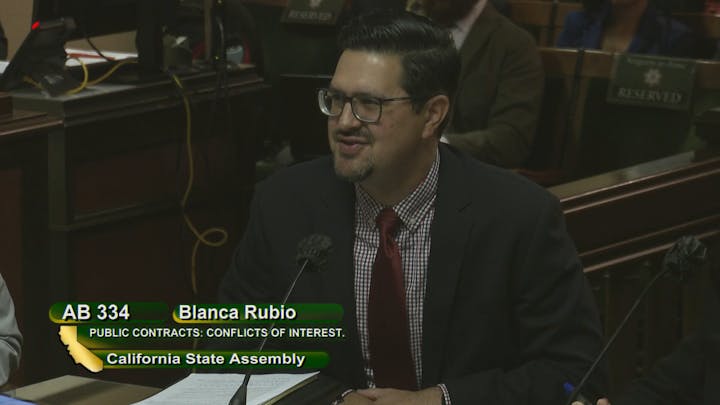CARPD's Sponsored Legislation: AB 817
Assemblymember Blanca Pacheco's AB 817 builds on pandemic-era rules to boost accessibility to loval civic leadership opportunities.
CARPD is proud to be a co-sponsor of AB 817 along with the League of California Cities (CalCities), Urban Counties of California (UCC), Rural County Representative of California (RCRC), the California Association of Counties (CSAC), and California Association of Public Authorities for In-Home Supportive Services (CAPA-IHSS).
BACKGROUND:
Local governments across California face an ongoing challenge to recruit and retain members of the public on advisory bodies, boards, and commissions. Challenges associated with recruitment have been attributed to time and location of meetings, physical limitations, conflicts with childcare, and work obligations.
Diversification in civic participation at all levels requires careful consideration of different protected characteristics as well as socio-economic status. The in-person requirement to participate in local governance bodies presents a disproportionate challenge for those with physical or economic limitations, including seniors, persons with disabilities, economically marginalized groups, and people who live in rural areas and face prohibitive driving distances.
The COVID-19 global pandemic drove a hyper-awareness about the spread of infectious diseases, but also removed barriers to local civic participation by allowing for remote participation. This embrace of teleconferencing has enabled individuals who could not otherwise accommodate the time, distance, or mandatory physical participation requirements to engage locally.
Participation in local advisory bodies and appointed boards and commissions often serves as a pipeline to local elected office and opportunities for state and federal leadership positions.
Existing law (Stats. 1991, Ch. 669) declares “a vast and largely untapped reservoir of talent exists among the citizenry of the State of California, and that rich and varied segments of this great human resource are, all too frequently, not aware of the many opportunities which exist to participate in and serve on local regulatory and advisory boards, commissions, and committees.”
Under the Local Appointments List, also known as Maddy’s Act, this information must be publicly noticed and published. However, merely informing the public of the opportunity to engage is not enough. We also must address barriers to entry to achieve diverse representation in leadership and further the Legislature’s declared goals of equal access and equal opportunity.
PROBLEM:
No law exists that governs Brown Act Bodies specific to advisory legislative subcommittees, boards, and commissions. Current law treats state advisory bodies differently, eliminating barriers to access and promoting equity in participation while local advisory body provisions continue to perpetuate inequities in who gets a voice at the table.
SOLUTION:
AB 817 provides a narrow exemption under the Brown Act for non-decision- making bodies governed by the Act to participate in two-way virtual teleconferencing without posting physical location of members, while aligning teleconferencing provisions to create one statewide standard for state and local advisory bodies.
AB 817 removes barriers to entry for appointed and elected office and promote equal access to civic participation by allowing advisory body members to participate virtually as long as they do not have the ability to take final action on legislation, regulations, contracts, licenses, permits, or other entitlements. The bill will sunset January 1, 2026, the same date as other remote participation statutes, to allow for further discussion.
Please join CARPD in supporting this important bill!
AB 817 Support Letter Template
For more on AB 817, check out our Coalition Letter, Assembly Member Pacheco’s Fact Sheet, and review the current draft language HERE

